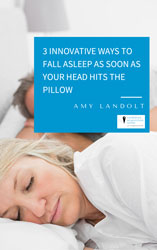Mary Leopold is a psychotherapist with over 30 years of experience, specializing in the treatment of children and adults, with a private practice office in Northbrook, Illinois. One of her primary interests is focusing on the often-lost connection between mind and body. In July 2017, she completed her health coach certification through the Institute for Integrative Nutrition, further expanding her interest in the connection between mental health and integrative nutrition. With an integration of complementary approaches, she draws from a variety of methodologies and techniques to incorporate what is most helpful for each individual. Her goal is to help clients achieve a state of emotional, physical and mental balance. She has always been fascinated by the connection between the mind and body, and she works in an integrative manner with all of her clients. She often incorporates breathing techniques and grounding exercises to help calm the nervous system and connect more deeply with our deeper selves.
Mary Leopold lives in Evanston with her family and a menagerie of animals. She helped place a wind phone on hole 11 of Canal Shores Golf Course in Evanston as a place to connect with her late son, Oliver.
What is your bedtime ritual?
My bedtime ritual is something that I take very seriously, as I have always struggled with insomnia. I turn off all screens around 9:30. My phone charges in another room for the night and it goes into do not disturb mode from 10pm–8am the next morning. I am an avid reader and do my reading at night; I have done so my entire life. I now read on a Kindle most of the time, and I have it set to very warm tones with a black background at night. I clean my face, brush my teeth, and enjoy the nightly ritual of taking care of my skin before bed. I also eat dinner as early as possible (anywhere between 5-6:30 weekdays), as I sleep much better when I have hours to digest before bed. I do not drink alcohol. I take 2 magnesium glycinate supplements after my cleansing ritual, and I also now take progesterone along with other HRT medications. The progesterone can have a sedating effect on many menopausal women, and this has helped my sleep immensely. I read for about 90 minutes a night, and by 11-11:30 pm I am very relaxed and sleepy.
I protect my sleep and will leave a gathering early so that I have time to unwind before bed. It can take a while for my nervous system to regulate.
Consistency with my sleep schedule has been the most helpful component of my sleep hygiene.
What do you do during the day that has the biggest impact on your sleep?
During the day, I am aware of how important it is for vitamin D from the sun to hit our eyeballs to lower cortisol and keep our circadian rhythms steady. I open the shades immediately when I wake up after having slept in a very darkened, cool room. I even cover my digital clock radio with a washcloth as it is too bright. I do like to wake up to an alarm clock. The morning is the time that I walk with my dog and allow for the sunshine (even on cloudy days) to positively affect my hormones and sleep cycle. I am not a caffeine drinker, but if I do have caffeinated tea, I do not drink caffeine after about 3pm. Like many of us, I do sleep better when I have moved my body during the day. I tend to gravitate to exercise that is calming to my central nervous system: walking, yoga, pilates, swimming, lifting weights. I am not an early riser and do stay up rather late, but this schedule works for me. I need between 8-9 hours/night of sleep.
If you have had a particularly challenging day and your normal bedtime routine isn’t enough for you to fall asleep, what do you try next?
If I am feeling activated in any way, I do several rounds of deep breathing, often using the 4-7-8 breathing technique. Inhale for 4, hold for 7, exhale for 8. If my body is achy or needs some extra TLC, I will use my foam roller in the dark to further relax my muscles. I also make my to-do lists at night if I am feeling overwhelmed by the tasks ahead. Everything goes from my busy brain onto paper. I do not keep lists on my phone. If I have a particularly bad case of monkey mind and the above doesn’t help, I will get out of bed and lie down in another room, listen to the Insight Timer app (free version), or read in another room until I am sleepy enough to fall back asleep. I no longer check the clock (also a reason I keep it covered) so that I am not anxious about how much sleep I seem to be losing. Something that really helps is to reassure myself that despite a poor night’s sleep, I will be fine. I will be able to work, function, and move forward with my day. A bath before bed is immediately calming, but this is not part of my nightly routine.
Both comments and trackbacks are closed.
 Mary Leopold
Mary Leopold Sign up to receive news and updates and get my free report:
Sign up to receive news and updates and get my free report:

